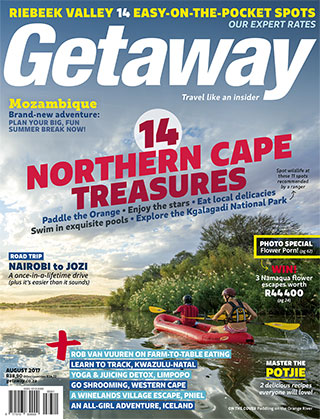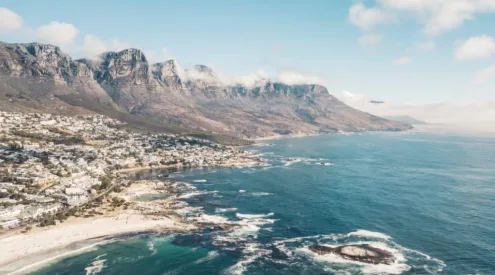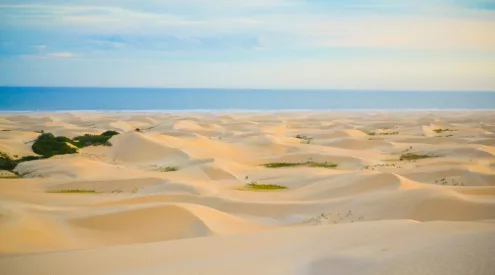There’s a reason we grew legs and walked out of the sea…

Does this ever happen to you? You’re at a dinner party and everybody starts to bond over the things they dislike the most. Like traffic, and Mondays, and people who have conversations in doorways, and the rising cost of being a living, breathing human. And then you chime in with your thing and the whole table stops and glares at you as if you just took money out of a charity collection box. That happens when I tell people I don’t like the beach.
‘You don’t like the beach!’ they’ll say. ‘What the hell is wrong with you? The beach is pure bliss!’
I just don’t like it. I don’t like the sandy bits weaselling their way into my home by clinging to every fibrous thing they can find. And I especially don’t care for the watery bits. The water is a capricious, hostile place that will turn on you without remorse.
‘But the ocean is life!’ they’ll say. ‘It’s where it all began. If you don’t like the sea you don’t like life.’
‘And now we live on the land. If it was so damn cosy in there why did we grow legs and leave?’
It’s usually at this point, just before cutlery gets flung around, that we agree to disagree and I say, ‘Well, I guess then the sea is just not for me.’
So, naturally, Getaway recently sent me to photograph a place that has oodles of it: Mozambique. The country is practically one giant beach. Just look at it on a map, stretched out beside the ocean, long and lithe like a belligerent sunbather hogging half of Southern Africa’s coastline. I was with our journalist Welcome Lishivha and a small group of cyclists on an inaugural fatbike tour, roaming the beaches around Ponta do Ouro on oversized rubber, stopping to snorkel to our heart’s content (read the story on page 80 of the August issue of Getaway). The cycling I was looking forward to. The being out in the open ocean, not so much. But I brought with a waterproof housing for my DSLR because what’s a story about Mozambique without photos of people enjoying its watery bounty?
‘How hard can taking photos underwater be?’ I thought, as I wrapped my camera in a silicone sheath while the others dropped their bicycles on the sand and sprinted for the ocean as if they were auditioning for Baywatch. I put on a mask, fins and followed them in.
I quickly discovered that taking photos in the ocean is actually much like taking photos on land. Except there’s no ground, you have no control over your direction and anything you bump into will either pierce you or cut you to ribbons.
Of course, when you’re in the ocean with a camera, everyone wants a shot of themselves in it too. So you oblige and try to point it at them as they float and dive and shoot big spouts of water from their snorkels. And when they give you that hand sign that means ‘OK’ you can’t help but think they’re actually showing you how big the hole in your body is from the urchin that just spiked you while you were pinballing between rocks, both hands on camera, trying not to drown.
‘Did you get it?’ They say. And you smile and nod and swallow more seawater. ‘Got it.’
I didn’t got it. I didn’t got any of it.
I might as well have just thrown my camera into a washing machine. The photos were all just blurred blues, bubbles and foam. And an upside-down photo of this man’s backside, whoever he is, two flippers dangling from a pair of limbs that are clearly not made to be there. I’m going to frame it and hang it on a wall and look at it any time someone asks me to take my camera to the beach again.

Read the full story in the August 2017 issue of Getaway magazine.
Our August issue features 14 Northern Cape treasures, a trip along Mozambique’s pristine beaches on a fat-bike, holidays to take if you want to learn a new skill and so much more.


















